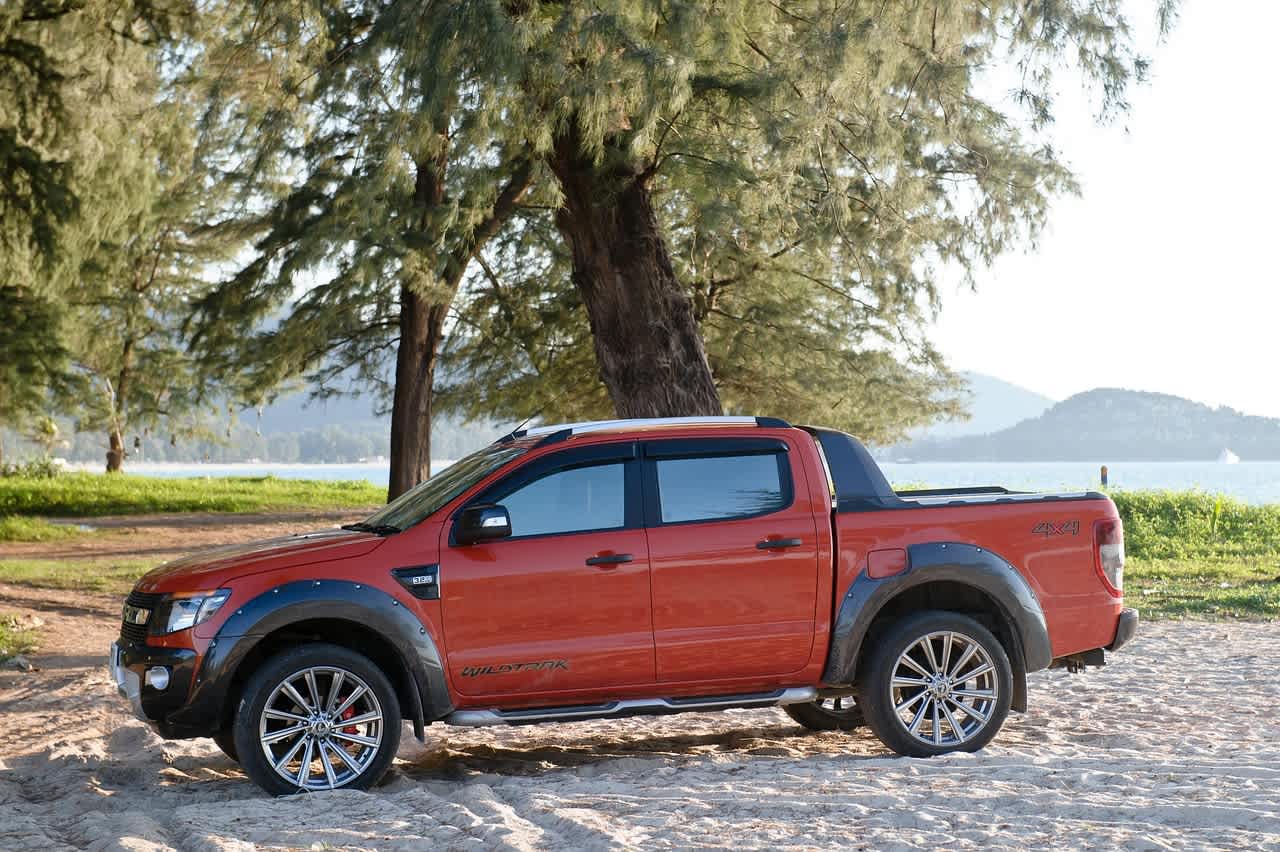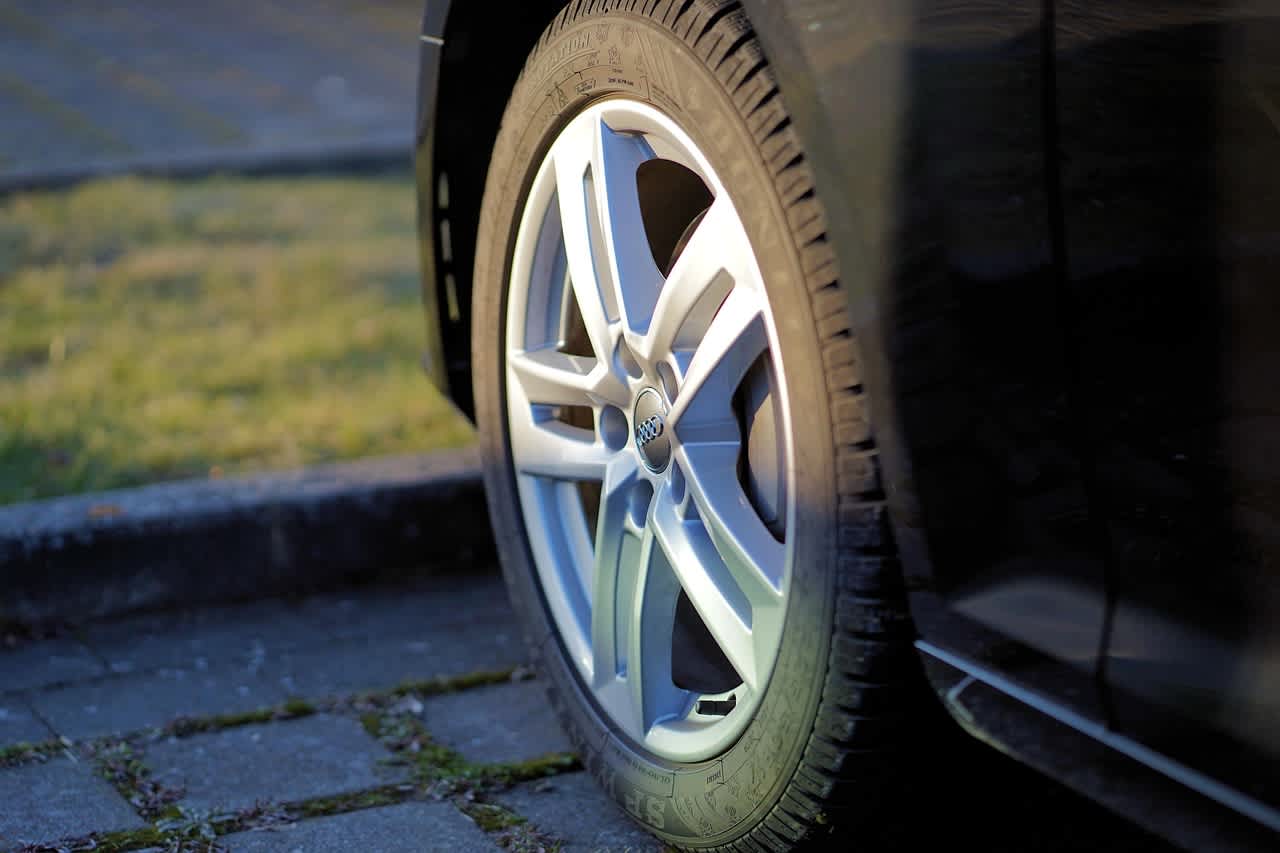Tire News & Information
Free shipping
Best price guarantee
SimpleCrew exclusive savings
0% financing options
Tire replacement coverage
24/7 roadside assistance
Easy returns

Tire load ratings play a crucial role in ensuring your vehicle's safety and performance, especially when carrying heavy loads or towing. Among the various load ratings available, the E load rating stands out for its superior strength and durability.
Understanding what the E load rating means and how it differs from other ratings can help you make an informed decision when selecting tires for your vehicle. Choosing the right load rating is particularly important for those who frequently haul heavy cargo or tow trailers.
In this article, we'll dive deep into the E load rating, exploring its meaning, benefits, and suitability for different vehicles and applications. By the end, you'll have a clear understanding of whether E load range tires are the right choice for your needs.
What Does E Load Rating Mean for Tires?

The E load rating on a tire indicates its maximum load-carrying capacity at a specific inflation pressure, typically 80 PSI. This rating is designed for heavy-duty applications, such as towing, hauling, and commercial use, where the tires need to support substantial weight without compromising safety or performance.
Tires with an E rating boast a 10-ply equivalent strength, thanks to their robust construction and advanced materials. This enhanced strength translates to superior durability and puncture resistance compared to tires with lower load ratings. The reinforced sidewalls and tread of E load range tires enable them to withstand the rigors of heavy-duty use, providing peace of mind when transporting precious cargo or navigating challenging terrain.
It's important to note that while E load range tires offer impressive load-carrying capabilities, they may not be necessary for all vehicles or driving situations. Consulting your vehicle's owner's manual and considering your specific needs will help you determine if E-rated tires are the optimal choice, or if a different load range would suffice. At SimpleTire, our tire experts are always ready to provide guidance and help you find the perfect tires for your vehicle and driving style.
What Vehicles Typically Use E-Rated Tires?
Vehicles built for demanding tasks often depend on E load range tires—particularly 3/4 ton and 1-ton pickup trucks. These trucks frequently encounter the challenge of carrying heavy loads or towing, making the durability and strength of E-rated tires indispensable. The enhanced load capacity of these tires ensures they meet the rigorous demands of such vehicles.
In addition to trucks, larger SUVs and vans that regularly bear significant weight also benefit from the robust capabilities of E-rated tires. These vehicles, often used for transporting multiple passengers or heavy cargo, require tires that deliver both stability and endurance. E load range tires provide the necessary support to maintain safe handling and performance under these conditions.
Trailers, especially those designed for hauling heavy equipment or livestock, typically utilize E-rated tires as well. The substantial weight and stress associated with these loads demand reliable tires that can maintain structural integrity. E load range tires offer the resilience needed to handle these heavy-duty applications, ensuring a smooth and secure journey.
How Much Weight Can E Load Range Tires Support?
E load range tires excel in their ability to support substantial weights, making them ideal for vehicles that frequently carry heavy loads. Typically, these tires can handle a significant amount of weight, ranging from 3,000 to 3,500 pounds per tire when inflated to their recommended pressure. This robust capacity ensures that vehicles equipped with E-rated tires maintain stability and safety under heavy load conditions.
Referencing the load index of your tires and matching it with your vehicle's weight specifications is essential. This practice ensures the tires' load-carrying capabilities align with the demands of your vehicle. Each tire's load index number provides crucial information about the maximum load it can bear, assisting in making informed decisions regarding tire selection.
While E load range tires offer exceptional load-bearing capacity, it's vital to remain within your vehicle's Gross Vehicle Weight Rating (GVWR) and Gross Axle Weight Rating (GAWR). Adhering to these ratings ensures your vehicle operates safely and efficiently, even with the added strength of E-rated tires. Ignoring these limits can lead to excessive stress on the tires and potentially compromise vehicle performance.
Differences Between E Load Range and Other Ratings

Tires with an E load range excel in supporting substantial weights, making them ideal for vehicles with demanding towing and hauling needs. These tires are specifically engineered to handle more weight compared to those with C and D load ratings, which are commonly used in light trucks and standard SUVs. This capability makes E-rated tires indispensable for vehicles regularly tasked with transporting heavy loads.
The construction of E load range tires is crucial to their performance. They feature reinforced sidewalls that provide additional stability, ensuring dependable handling when carrying substantial loads. However, this rigidity might result in a firmer ride, as the stiffer sidewalls can transmit more road feedback into the cabin. Despite this, the enhanced stability of E-rated tires is a significant advantage for those prioritizing safety and control.
In scenarios where vehicles need even more capacity than E load range tires can offer, options like F load range tires exist. These are tailored for even more intense commercial applications, where the utmost strength and durability are required. Conversely, standard passenger vehicles typically use tires with basic or extra load ratings, designed to offer a comfortable balance between cushioning and everyday performance.
Choosing the Right E Load Range Tires for Your Needs
Selecting the right E load range tires involves considering several key factors that align with your vehicle's specific demands. Begin by evaluating the typical demands placed on your vehicle. If your vehicle is regularly tasked with towing or carrying heavy loads, E-rated tires offer the necessary durability and load-carrying capacity to handle these challenges effectively.
To ensure compatibility and performance, refer to the information provided by your vehicle's manufacturer. This includes checking the tire specifications recommended on the vehicle's door placard and any guidance within the owner's manual. Adhering to these specifications helps to maintain the vehicle's safety and handling characteristics.
Your driving habits and comfort expectations are also important considerations. E-load range tires are engineered for enhanced stability and support under heavy loads, which may result in a firmer ride. Balance your need for load capacity with your desired ride comfort to make an informed choice.
Engage with a tire specialist to assist in your selection. Their expertise can offer insights into the best tire options for your vehicle's requirements and your driving conditions. This ensures you choose the most suitable load range E tires for optimal performance and safety.
Maintaining Proper Tire Pressure for E Load Range Tires
Ensuring that E load range tires are inflated to their correct pressure is essential for optimal performance and durability. These tires are designed to operate at higher pressures than standard tires, typically needing around 80 PSI to handle their full load capacity. This specific pressure helps maintain the tire's shape and provides the stability required for demanding tasks like towing.
Failing to maintain the proper tire pressure can lead to several issues. If the pressure is too low, the tires can flex excessively, leading to heat build-up that may compromise the tire's structure. This can result in uneven tread wear, reducing the tire's lifespan and affecting vehicle handling, especially under load.
It is important to regularly check and adjust tire pressures, particularly before embarking on trips that involve heavy loads. Using a dependable tire pressure gauge can help ensure your tires are inflated correctly. For those without immediate access to a high-pressure compressor, many truck stops offer air stations capable of reaching the necessary pressure for E load range tires. By keeping your tires properly inflated, you enhance safety, extend tire life, and maintain the vehicle's performance.
At SimpleTire, we understand the importance of selecting the right tires for your vehicle's specific needs. Our team of experts is dedicated to providing you with the knowledge and guidance necessary to make an informed decision. If you're ready to find the perfect set of E load range tires or any other tire type, shop for tires online with us and discover the best deals available.
Ready to find the perfect tires?
Search By